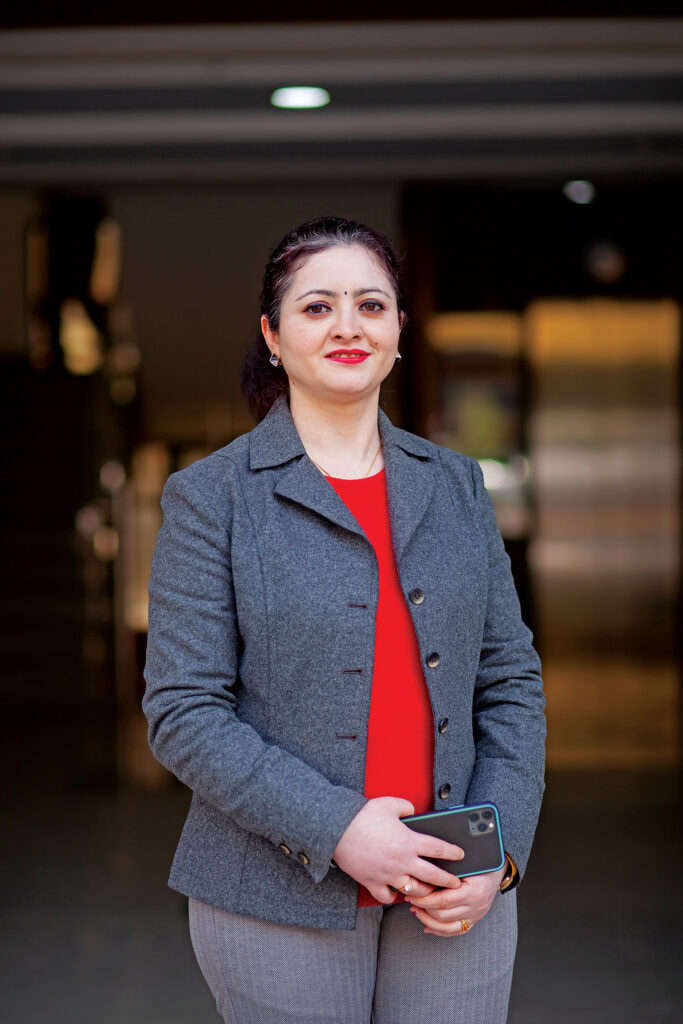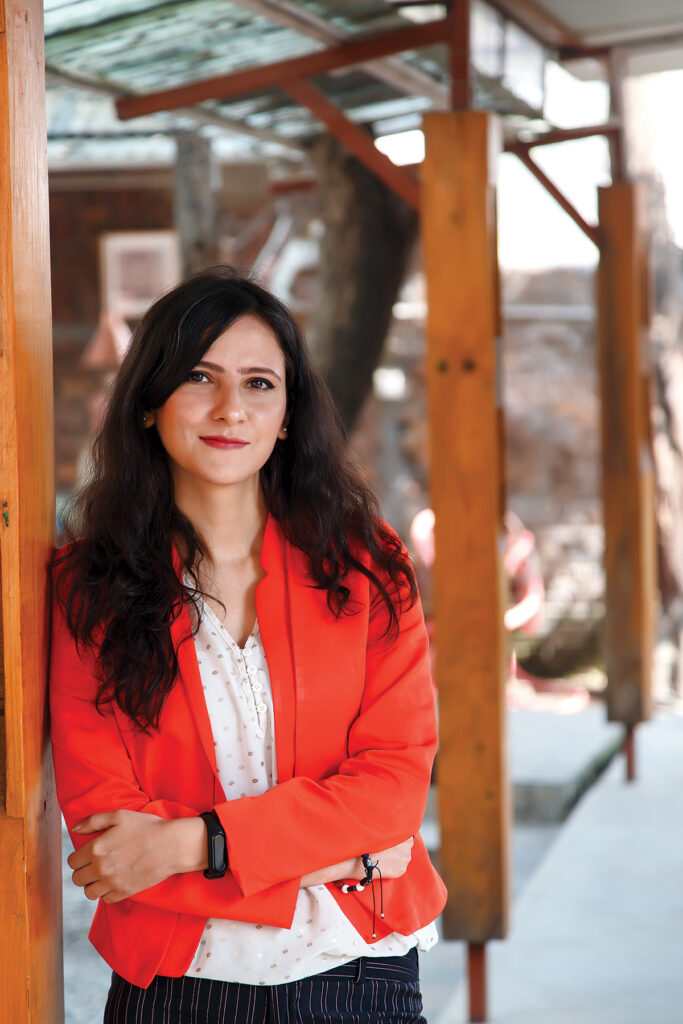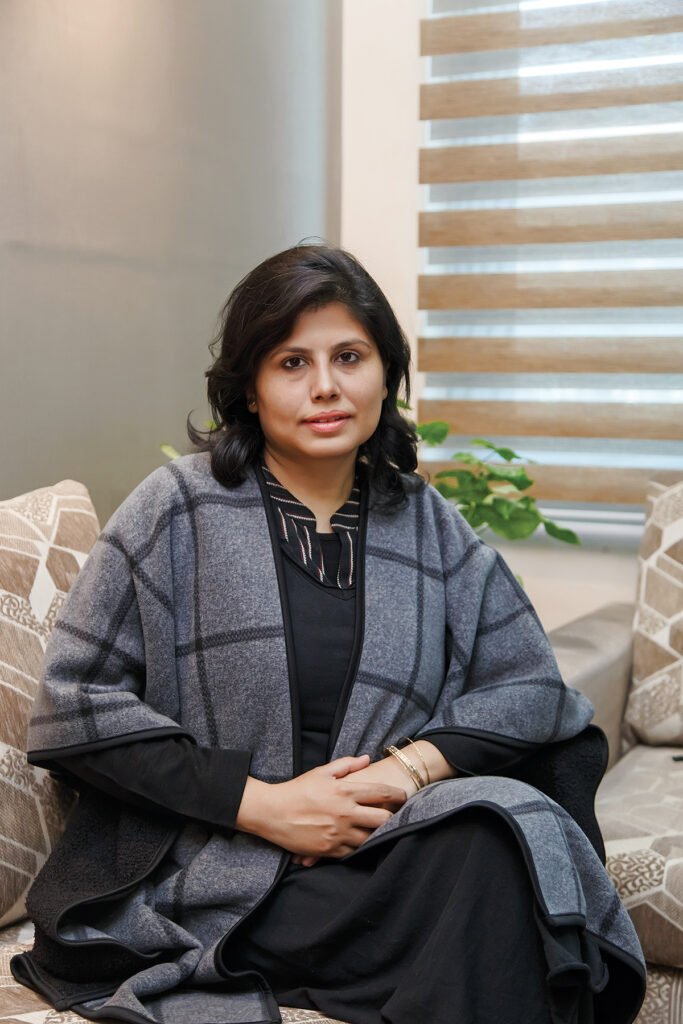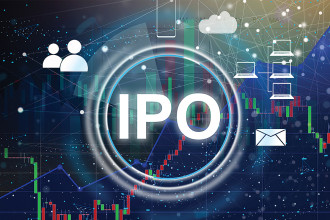
A McKinsey Global Institute report titled ‘The future of Women at work: Transitions in the age of automation’ shows that work is beginning to look very different in a world that is fast transitioning to automation and artificial intelligence. It states that while this creates new opportunities and avenues for jobs, entrepreneurship and advancement, women continue to lag behind. It is estimated that between 40 to 160 million women globally may need to transition to occupations that require higher skilled roles by 2030. Women need to be skilled, mobile and tech savvy to weather this disruption.
Mean While, traditional roles for women continue to dominate with women having to work twice as hard as men to prove their mettle. However, there are some women who are cementing their position in different career landscapes and becoming role models for others to emulate, entrepreneurship being one important area that propagates feminism to create social change. Entrepreneurial feminists enter commercial markets to create wealth and social change based on the ethics of cooperation, equality and mutual respect
In this issue of Business 360, we talked to six women in leadership positions on the topic of feminism, gender blindness, and the importance of representation and inclusion.
 Formally established in January 2020, Aji’s is a social enterprise that not only focuses on recognising the passion of the elderly and provide a platform to showcase their skills and knowledge, but also helps strengthen intergenerational bonds.
Sthapit has previously worked as a development professional for almost a decade with organisations such as Oxfam and IFAD, and teaches Post-Graduate Diploma in Women’s Studies at the Padma Kanya Campus. She holds an MSc degree in Gender and Development Studies from the Asian Institute of Technology and is INSEAD Social Entrepreneurship Programme Alumni. She is also a professionally trained Kathak dancer and has performed at several national and international events.
Formally established in January 2020, Aji’s is a social enterprise that not only focuses on recognising the passion of the elderly and provide a platform to showcase their skills and knowledge, but also helps strengthen intergenerational bonds.
Sthapit has previously worked as a development professional for almost a decade with organisations such as Oxfam and IFAD, and teaches Post-Graduate Diploma in Women’s Studies at the Padma Kanya Campus. She holds an MSc degree in Gender and Development Studies from the Asian Institute of Technology and is INSEAD Social Entrepreneurship Programme Alumni. She is also a professionally trained Kathak dancer and has performed at several national and international events.
 CEO of the NRN Infrastructure and Development Limited, Usha Khatiwada holds a post graduate degree in Rural Development. She worked as the Chief Operating Officer at NRNIL for five years prior to being appointed its CEO in August 2019. NRNIL is a listed company and was registered under the Company Act 2063 on September 2012 in Nepal with a major motive of collective investment (investment done by Non Resident Nepalis) in infrastructure sectors. The company has investments in five different hydropower projects of various sizes and are currently exploring investment in national pride projects. Khatiwada has been listed in Conscious Company’s 2020 list of World Changing Women in Conscious Business and has been awarded Most Influential Women of the Year 2020 and Corporate Women of Year at RSTCA Foundation’s Women with Vision awards.
CEO of the NRN Infrastructure and Development Limited, Usha Khatiwada holds a post graduate degree in Rural Development. She worked as the Chief Operating Officer at NRNIL for five years prior to being appointed its CEO in August 2019. NRNIL is a listed company and was registered under the Company Act 2063 on September 2012 in Nepal with a major motive of collective investment (investment done by Non Resident Nepalis) in infrastructure sectors. The company has investments in five different hydropower projects of various sizes and are currently exploring investment in national pride projects. Khatiwada has been listed in Conscious Company’s 2020 list of World Changing Women in Conscious Business and has been awarded Most Influential Women of the Year 2020 and Corporate Women of Year at RSTCA Foundation’s Women with Vision awards.
 Alina Prajapati joined the business established by her father in 1984, and dreams of taking it to new heights. After her Bachelor’s degree, she worked in PR and Marketing before taking charge of Cera Nepal’s marketing full-time, first exploring the wheel and then thinking of promoting it via social media platforms and website, and building the factory into a chic traditional studio. After five years of reinventing, research and understanding the market, she became the company’s Managing Director in 2019. Besides exporting ceramic products to Europe, USA and Japan, Cera Nepal also promotes the pottery experience through individual sessions and training.
Alina Prajapati joined the business established by her father in 1984, and dreams of taking it to new heights. After her Bachelor’s degree, she worked in PR and Marketing before taking charge of Cera Nepal’s marketing full-time, first exploring the wheel and then thinking of promoting it via social media platforms and website, and building the factory into a chic traditional studio. After five years of reinventing, research and understanding the market, she became the company’s Managing Director in 2019. Besides exporting ceramic products to Europe, USA and Japan, Cera Nepal also promotes the pottery experience through individual sessions and training.
 A Master’s degree graduate in Home Science with specialisation in food and nutrition from Tribhuwan University, Bonita Sharma is the Co-founder and CEO of Social Changemakers and Innovators (SOCHAI), a youth led non-profit organisation that works towards improving health, hygiene and nutrition of people particularly women, children and girls in Nepal through innovation, education and entrepreneurship.
She was listed by BBC as one of the 100 Most Influential Women in the World in 2019 and has been recognised by UNESCO as a female champion for educating women and girls in Nepal. Sharma was also the winner of One Young World Lead 2030 Challenge and UNICEF Asia Pacific Youth Innovation Challenge 2016 for her idea of ‘Nutribeads’ bracelet – a low tech wearable nutrition education tool and also made it to the BBC 100 Women 2019 List. She is one of the winners of 2020 Goalkeepers Global Goals Award given by Bill & Melinda Gates Foundation. She is also a member of Provincial Nutrition and Food Security Steering Committee of Bagmati Province.
A Master’s degree graduate in Home Science with specialisation in food and nutrition from Tribhuwan University, Bonita Sharma is the Co-founder and CEO of Social Changemakers and Innovators (SOCHAI), a youth led non-profit organisation that works towards improving health, hygiene and nutrition of people particularly women, children and girls in Nepal through innovation, education and entrepreneurship.
She was listed by BBC as one of the 100 Most Influential Women in the World in 2019 and has been recognised by UNESCO as a female champion for educating women and girls in Nepal. Sharma was also the winner of One Young World Lead 2030 Challenge and UNICEF Asia Pacific Youth Innovation Challenge 2016 for her idea of ‘Nutribeads’ bracelet – a low tech wearable nutrition education tool and also made it to the BBC 100 Women 2019 List. She is one of the winners of 2020 Goalkeepers Global Goals Award given by Bill & Melinda Gates Foundation. She is also a member of Provincial Nutrition and Food Security Steering Committee of Bagmati Province.
 CEO of Kimbu Tech, Karvika Thapa was living the American dream in Boston with a promising career in Information Technology. But after 14 years, in 2017 she decided to head back home to Nepal with her husband and two young daughters. When Thapa eventually returned to Nepal, starting her own business was not something that she had thought about, but after finding out that the tech field in Nepal had so few women, she decided to create opportunities and founded Kimbu Tech with a vision of creating quality jobs.
She was among a handful of female students in the first year of Kathmandu College of Management’s Bachelor’s program in Information Systems. Thapa then went to the US for her MBA and stayed on to work. Over the course of her years there, she worked in IT solutions, data management, database marketing and campaigns in education, healthcare and retail.
Today, she leads a quality team of Nepali women and men who provide software development, maintenance and support services for companies in Nepal, Israel and the US. Having already created a space for women in tech, Thapa dreams of a time when women not only work as IT experts and programmers but also become leaders in the field.
She is leading an effort to establish an international level IT programme at Gandaki University in Pokhara, and also hosts the Women in Tech Facebook group where Thapa encourages more women and girls to network and collaborate in the tech sector.
CEO of Kimbu Tech, Karvika Thapa was living the American dream in Boston with a promising career in Information Technology. But after 14 years, in 2017 she decided to head back home to Nepal with her husband and two young daughters. When Thapa eventually returned to Nepal, starting her own business was not something that she had thought about, but after finding out that the tech field in Nepal had so few women, she decided to create opportunities and founded Kimbu Tech with a vision of creating quality jobs.
She was among a handful of female students in the first year of Kathmandu College of Management’s Bachelor’s program in Information Systems. Thapa then went to the US for her MBA and stayed on to work. Over the course of her years there, she worked in IT solutions, data management, database marketing and campaigns in education, healthcare and retail.
Today, she leads a quality team of Nepali women and men who provide software development, maintenance and support services for companies in Nepal, Israel and the US. Having already created a space for women in tech, Thapa dreams of a time when women not only work as IT experts and programmers but also become leaders in the field.
She is leading an effort to establish an international level IT programme at Gandaki University in Pokhara, and also hosts the Women in Tech Facebook group where Thapa encourages more women and girls to network and collaborate in the tech sector.
 Sonika Manandhar is a computer engineer, social entrepreneur and the Co-founder of Aeloi Technologies, a fintech platform that mobilises the grassroot economy to reduce climate change by bridging the last mile impact financing gap for green micro-entrepreneurs with digital tokens. She spent nearly a decade as a software programmer at Microsoft Innovation Centre Nepal and today uses her technical expertise as a tool to communicate with the grassroots micro-entrepreneurs and translate that knowledge towards building a fintech solution that matches the grassroots user needs.
Manandhar graduated as a computer engineer from Kathmandu Engineering College, and is a Singularity University alumni and Korea Aerospace Research Institute alumni. In 2017, she was the first Nepali who was offered a scholarship to go to the Silicon Valley-based program called Global Solutions Program at NASA in California. During her time at Singularity University, she studied exponential technologies such as robotics, artificial, intelligence, block chain, etc, and her company was selected among three companies to pitch at Singularity University Global Summit in Silicon Valley. Manandhar was also offered a scholarship to attend the International Space Training at Korea Aerospace Research Institute in 2018.
She has also been an advocate for blind students and has worked to empower blind children with computer education established a computer lab in 2013 and was involved in finding new ways of teaching a computer to blind students.
In 2019, Manandhar was named as Young Champions of Earth by the United Nations Environment Programme (UNEP). The UN Environment Programme listed her as one of the six examples of climate leadership on Women’s Day alongside Christiana Figueres, Greta Thunberg, Anne Hidalgo, Carolina Schmidt and Kibarisho Leintoi. She also was the winner of the SDG 9: infrastructure, industry, and innovation category award of the Lead 2030 Challenge by One Young World sponsored by Standard Chartered with seed funding of $50,000.
In 2020, Manandhar was named National Geographic Society’s Emerging Explorer 2020. National Geographic Society chooses eight global changemakers conducting groundbreaking work as the class of Emerging Explorers who will transform their fields and further our understanding of our world and all that’s in it.
Sonika Manandhar is a computer engineer, social entrepreneur and the Co-founder of Aeloi Technologies, a fintech platform that mobilises the grassroot economy to reduce climate change by bridging the last mile impact financing gap for green micro-entrepreneurs with digital tokens. She spent nearly a decade as a software programmer at Microsoft Innovation Centre Nepal and today uses her technical expertise as a tool to communicate with the grassroots micro-entrepreneurs and translate that knowledge towards building a fintech solution that matches the grassroots user needs.
Manandhar graduated as a computer engineer from Kathmandu Engineering College, and is a Singularity University alumni and Korea Aerospace Research Institute alumni. In 2017, she was the first Nepali who was offered a scholarship to go to the Silicon Valley-based program called Global Solutions Program at NASA in California. During her time at Singularity University, she studied exponential technologies such as robotics, artificial, intelligence, block chain, etc, and her company was selected among three companies to pitch at Singularity University Global Summit in Silicon Valley. Manandhar was also offered a scholarship to attend the International Space Training at Korea Aerospace Research Institute in 2018.
She has also been an advocate for blind students and has worked to empower blind children with computer education established a computer lab in 2013 and was involved in finding new ways of teaching a computer to blind students.
In 2019, Manandhar was named as Young Champions of Earth by the United Nations Environment Programme (UNEP). The UN Environment Programme listed her as one of the six examples of climate leadership on Women’s Day alongside Christiana Figueres, Greta Thunberg, Anne Hidalgo, Carolina Schmidt and Kibarisho Leintoi. She also was the winner of the SDG 9: infrastructure, industry, and innovation category award of the Lead 2030 Challenge by One Young World sponsored by Standard Chartered with seed funding of $50,000.
In 2020, Manandhar was named National Geographic Society’s Emerging Explorer 2020. National Geographic Society chooses eight global changemakers conducting groundbreaking work as the class of Emerging Explorers who will transform their fields and further our understanding of our world and all that’s in it.
Lorina Sthapit Co-founder of Aji’s Products & Host of Aji’s Podcast
 Formally established in January 2020, Aji’s is a social enterprise that not only focuses on recognising the passion of the elderly and provide a platform to showcase their skills and knowledge, but also helps strengthen intergenerational bonds.
Sthapit has previously worked as a development professional for almost a decade with organisations such as Oxfam and IFAD, and teaches Post-Graduate Diploma in Women’s Studies at the Padma Kanya Campus. She holds an MSc degree in Gender and Development Studies from the Asian Institute of Technology and is INSEAD Social Entrepreneurship Programme Alumni. She is also a professionally trained Kathak dancer and has performed at several national and international events.
Formally established in January 2020, Aji’s is a social enterprise that not only focuses on recognising the passion of the elderly and provide a platform to showcase their skills and knowledge, but also helps strengthen intergenerational bonds.
Sthapit has previously worked as a development professional for almost a decade with organisations such as Oxfam and IFAD, and teaches Post-Graduate Diploma in Women’s Studies at the Padma Kanya Campus. She holds an MSc degree in Gender and Development Studies from the Asian Institute of Technology and is INSEAD Social Entrepreneurship Programme Alumni. She is also a professionally trained Kathak dancer and has performed at several national and international events.
Do you call yourself a feminist?
Of course. I am a proud feminist and everyone should be. I hope we can build a world where it’s a given and we won’t have to ask this question to categorise people as non-feminists. It’s not a label; it’s a choice for equality.Is there any difference between how a man and a woman conduct business?
It depends on the individual. But we do have research and stats by Goldman Sachs and McKinsey that prove that women are outdoing men when it comes to running successful businesses. I also believe that we can do even better together. We can achieve more when we join forces and work with a diverse team.Why should a Woman CEO be pointedly addressed as a Woman CEO and not just a CEO?
We don’t have to. But it is also important to acknowledge the fact that a woman or someone who does not identify as a man is the CEO because there is no doubt that the person has overcome many odds and has made it above the glass ceiling. We need to acknowledge and celebrate that achievement and respect that pride.What are the common roadblocks for women in business?
It is a sad truth but there still are many hurdles; the famous one being the patriarchal mindset that stereotypes business as a man’s world.Why is representation important? Why is inclusion important?
Because there is no other way for someone else to tell YOUR story the way you have lived, to ask for what YOU need and speak up for what YOU believe in. No one else can do a better job so that’s why we need to be on the table to represent community. This is not just a moral reason but there are also economic reasons. An economy with diversity of ideas and contributions will thrive more compared to an economy with less diversity.Usha Khatiwada CEO, NRN Infrastructure and Development
 CEO of the NRN Infrastructure and Development Limited, Usha Khatiwada holds a post graduate degree in Rural Development. She worked as the Chief Operating Officer at NRNIL for five years prior to being appointed its CEO in August 2019. NRNIL is a listed company and was registered under the Company Act 2063 on September 2012 in Nepal with a major motive of collective investment (investment done by Non Resident Nepalis) in infrastructure sectors. The company has investments in five different hydropower projects of various sizes and are currently exploring investment in national pride projects. Khatiwada has been listed in Conscious Company’s 2020 list of World Changing Women in Conscious Business and has been awarded Most Influential Women of the Year 2020 and Corporate Women of Year at RSTCA Foundation’s Women with Vision awards.
CEO of the NRN Infrastructure and Development Limited, Usha Khatiwada holds a post graduate degree in Rural Development. She worked as the Chief Operating Officer at NRNIL for five years prior to being appointed its CEO in August 2019. NRNIL is a listed company and was registered under the Company Act 2063 on September 2012 in Nepal with a major motive of collective investment (investment done by Non Resident Nepalis) in infrastructure sectors. The company has investments in five different hydropower projects of various sizes and are currently exploring investment in national pride projects. Khatiwada has been listed in Conscious Company’s 2020 list of World Changing Women in Conscious Business and has been awarded Most Influential Women of the Year 2020 and Corporate Women of Year at RSTCA Foundation’s Women with Vision awards.
Do you call yourself a feminist?
The dictionary definition of feminism elaborates: “The theory of the political, economic and social equality of the sexes, or organised activity on behalf of women’s rights and interests.” Nowhere in the official definition listed has it said that feminism is a vicious movement led by women who hate men and desire to subjugate them. But the misinterpretation and misconceptions about feminism vary and some recurring themes are the association of feminism with the perceived desire of women to bring men down and their ostensible hatred of men. Feminism actually liberates both men and women from social pressures. Some may question this argument, thinking that men already have the power to pursue whichever role in society they want. But in reality, gender stereotypes and social conditioning pressure people to take on or avoid certain jobs. For example, men are told not to be hair stylists, nurses or flight attendants, while women are told not to have military careers/ or take on “dangerous” work. Feminism can bring us closer to a society with no gender inequality in which everyone can choose to take on roles they fit best in, not ones they are pressured into. “Isn’t feminism essentially advocating for gender equality?” If it’s so I think everyone is a feminist. I’d like to admit that I still have a lot to learn about the history of the feminist movement and what it means to be a feminist. However I still believe with confidence that I am a feminist.Is there any difference between how a man and a woman conduct business?
As men and women are completely different in nature which leads to difference in doing business too: Our ability to share our feelings without worry for our ego makes it easier for others to lend a helping hand or offer advice that could help us march ahead. In business women can forge stronger relationships. We form tighter bonds with everyone: our employees, vendors, customers, etc. Part of this is due to our more open style of communication and our ability to show more empathy. Women do more with less. Women will hunt for a bargain, which is a great skill for doing business. Women have had a lot of experience making something out of nothing as we’ve been told “no” many times in our lives. We’ve had to be creative and think outside the box when it comes to problem solving. We’ve had to lean on each other for help. We’ve had to negotiate our hearts out. Women are more resilient. Call it our intuition, the woman’s touch or whatever you want, but it’s a fact that women make better leaders than men in business and investing. Women are better financial planners. Women have the ability to think more about the long-term than short-term. When it comes to investing that is critical. Men tend to be more focused on the day to day moves while women acknowledge volatility as short term and move past it. Irony is even when women tend to have a better ability to forecast investment opportunities that will yield a higher return, they still defer investment decisions to their spouse. Yet I believe women run businesses outperform those of men because of their work ethic. Women have to work harder to climb the corporate ladder. Women have advanced a great deal in the business world. Unfortunately, the business world hasn’t advanced along with them.Why should a Woman CEO be pointedly addressed as a Woman CEO and not just a CEO?
The reason might be there are only few countable CEOs in numbers and such situation of salutation might have been created. It’s more a mindset rather than legality. I have not noticed anywhere in act that it should be mentioned as women CEO or female CEO. Women continue to face unfair gender biases in the workplace. However, when viewed from an empowered perspective, these obstacles can serve to strengthen and elevate women business leaders and CEOs in diverse spaces. Meeting these challenges head on presents an incredible opportunity to make a positive impact on your situation and those of future generations. We live in a unique time in history, one in which we have the power and opportunity together to break down long standing and new potential barriers on the horizon, and realise our biggest dreams and career aspirations.Why is representation important? Why is inclusion important?
Representation is important because gender balanced environment, organisations, institutions like educational, financial or political etc. makes better decisions not just for women but for entire society and whole world. Inclusion is important as it approaches on economic growth, productivity and employment, social cohesion, peace and state building empowerment and accountability.Alina Prajapati Managing Director, Cera Nepal Udyog
 Alina Prajapati joined the business established by her father in 1984, and dreams of taking it to new heights. After her Bachelor’s degree, she worked in PR and Marketing before taking charge of Cera Nepal’s marketing full-time, first exploring the wheel and then thinking of promoting it via social media platforms and website, and building the factory into a chic traditional studio. After five years of reinventing, research and understanding the market, she became the company’s Managing Director in 2019. Besides exporting ceramic products to Europe, USA and Japan, Cera Nepal also promotes the pottery experience through individual sessions and training.
Alina Prajapati joined the business established by her father in 1984, and dreams of taking it to new heights. After her Bachelor’s degree, she worked in PR and Marketing before taking charge of Cera Nepal’s marketing full-time, first exploring the wheel and then thinking of promoting it via social media platforms and website, and building the factory into a chic traditional studio. After five years of reinventing, research and understanding the market, she became the company’s Managing Director in 2019. Besides exporting ceramic products to Europe, USA and Japan, Cera Nepal also promotes the pottery experience through individual sessions and training.
Do you call yourself a feminist?
I believe in respecting differences in all beings in the world; each should have equal chance to voice their opinions and opportunities. I am against biasness that is practiced in the society among sexes or gender.Is there any difference between how a man and a woman conduct business?
Depending on the nature and characteristics of a person, the traits of doing work are different. Women are people oriented in the process of working and pursing the mission of the business. Men have their own way of doing business being task focused to meet the mission. These differences aren’t about being man or woman but about being a distinct individual carrying a unique way of working. Ultimately doing business is about creating value and making difference.Why should a Woman CEO be pointedly addressed as a Woman CEO and not just a CEO?
Only a small percentage of women in the world are able to break through the glass ceiling and achieve top positions. Stating a woman as a Woman CEO motivates other women to see the possibilities for success. The responsibilities, rights and duties of a CEO do not become less or more because you are a woman CEO or a man CEO. The recognition for women as a CEO should be based on their work and achievements rather than their gender. They have earned and reached the position of a CEO due to their abilities.What are the common roadblocks for women in business?
The most common one is to challenge the patriarchal mindset in the society. Even though women are encouraged and supported to do business or any other work, society creates barriers with stereotypes. Women are allowed to do business but restrictions are plentiful like travelling alone to work outside the valley or country.Why is representation important? Why is inclusion important?
Representation gives an opportunity to voice different perspectives from different parts of the society. It reduces biasness. Also, it gives an innovative angle to identify root of the issues and areas of solutions. The decision made with such inclusion carries ownership from the people and when implemented, it fulfils its purpose.Bonita Sharma Co-founder & CEO, Social Changemakers and Innovators
 A Master’s degree graduate in Home Science with specialisation in food and nutrition from Tribhuwan University, Bonita Sharma is the Co-founder and CEO of Social Changemakers and Innovators (SOCHAI), a youth led non-profit organisation that works towards improving health, hygiene and nutrition of people particularly women, children and girls in Nepal through innovation, education and entrepreneurship.
She was listed by BBC as one of the 100 Most Influential Women in the World in 2019 and has been recognised by UNESCO as a female champion for educating women and girls in Nepal. Sharma was also the winner of One Young World Lead 2030 Challenge and UNICEF Asia Pacific Youth Innovation Challenge 2016 for her idea of ‘Nutribeads’ bracelet – a low tech wearable nutrition education tool and also made it to the BBC 100 Women 2019 List. She is one of the winners of 2020 Goalkeepers Global Goals Award given by Bill & Melinda Gates Foundation. She is also a member of Provincial Nutrition and Food Security Steering Committee of Bagmati Province.
A Master’s degree graduate in Home Science with specialisation in food and nutrition from Tribhuwan University, Bonita Sharma is the Co-founder and CEO of Social Changemakers and Innovators (SOCHAI), a youth led non-profit organisation that works towards improving health, hygiene and nutrition of people particularly women, children and girls in Nepal through innovation, education and entrepreneurship.
She was listed by BBC as one of the 100 Most Influential Women in the World in 2019 and has been recognised by UNESCO as a female champion for educating women and girls in Nepal. Sharma was also the winner of One Young World Lead 2030 Challenge and UNICEF Asia Pacific Youth Innovation Challenge 2016 for her idea of ‘Nutribeads’ bracelet – a low tech wearable nutrition education tool and also made it to the BBC 100 Women 2019 List. She is one of the winners of 2020 Goalkeepers Global Goals Award given by Bill & Melinda Gates Foundation. She is also a member of Provincial Nutrition and Food Security Steering Committee of Bagmati Province.
Do you call yourself a feminist?
Yes. I am a feminist because there is nothing else you can be. From a young age I sensed that our society treats men and women differently. As I grew up, I began to realise that the society is unequal towards women and felt it was unfair. The difference in sexual orientation/gender identity/caste/religion/ethnicity should never translate to different level of access to opportunities. Everyone deserves a fair chance to grow and thrive in social, political and economic spaces. This is what feminism is for me, and I am a proud feminist.Is there any difference between how a man and a woman conduct business?
In an ideal world, maybe not. One’s leadership, communication, decision-making capacity and how one runs a business is not determined by their sex. However, we are a part of the patriarchal system and a lot of our deep-rooted beliefs, attitudes and actions are based on existing gender norms, so there might be different approach because of the unconscious biasness.Why should a Woman CEO be pointedly addressed as a Woman CEO and not just a CEO?
I think it is perfectly alright to call a female CEO just a CEO. Most of the times adding a ‘female’ patronises a woman’s achievement and makes it sound like the focus is on her femaleness rather than her work. But depending on the context that we are discussing upon, sometimes it is also important to highlight the success and challenges from a female perspective. Gender blindness might sound like a cool concept when we think about it but I don’t think it is practical in the real world because our society is not gender blind. A gender blind world will not be aware and sensitive towards the diverse needs and problems of women and non-binary people. We are already standing on uneven ground and such blindness will further silence the discrimination and violence we face because of our gender. There is still a long way to achieve gender equality.What are the common roadblocks for women in business?
If we look at the barriers from a gendered lens, from a young age boys are encouraged to be outgoing and risk-takers while women’s interaction to the world outside home is restricted. This already limits women from learning essential networking, communication skills and building her confidence. This also creates difficulties in finding the right resources and opportunities to learn about the basics of running a business. I have had the first-hand experience of such barriers while running my company SOCHAI. I have felt unwelcomed and disrespected entering spaces occupied by men, especially during the administrative, financial proceedings and meetings. How we get treated in such spaces are based on our age and gender – sometimes it’s naani, sometimes cheli, baini while my male colleague gets addressed as sir. It was challenging to navigate through all those because we are never taught how to tackle such problems. I’ve also observed that women are expected to be compassionate, caring, giving in nature and are more likely to be caregivers at home as compared to men which puts an additional burden on their role as a business person. Besides, no matter how much a woman achieves in business, the society will still consider women to be incomplete without the 3Ms - Man, Marriage and Motherhood.Why is representation important? Why is inclusion important?
Representation, inclusion and intersectionality helps in bringing diverse perspective to the decision-making table. It helps in identifying the challenges that leaders, policy makers and program planners might not be aware of. Bringing the collective approach together will not just amplify the voices of the vulnerable and marginalised but will also bring in unique and practical solutions to empower communities on a larger scale. Mostly, this will give hope and courage to the young people to envision themselves in leadership roles. Besides, applying blanket solution or a one size fits all strategy without taking our uniqueness in consideration will certainly be a failure.Karvika Thapa CEO, Kimbu Tech
 CEO of Kimbu Tech, Karvika Thapa was living the American dream in Boston with a promising career in Information Technology. But after 14 years, in 2017 she decided to head back home to Nepal with her husband and two young daughters. When Thapa eventually returned to Nepal, starting her own business was not something that she had thought about, but after finding out that the tech field in Nepal had so few women, she decided to create opportunities and founded Kimbu Tech with a vision of creating quality jobs.
She was among a handful of female students in the first year of Kathmandu College of Management’s Bachelor’s program in Information Systems. Thapa then went to the US for her MBA and stayed on to work. Over the course of her years there, she worked in IT solutions, data management, database marketing and campaigns in education, healthcare and retail.
Today, she leads a quality team of Nepali women and men who provide software development, maintenance and support services for companies in Nepal, Israel and the US. Having already created a space for women in tech, Thapa dreams of a time when women not only work as IT experts and programmers but also become leaders in the field.
She is leading an effort to establish an international level IT programme at Gandaki University in Pokhara, and also hosts the Women in Tech Facebook group where Thapa encourages more women and girls to network and collaborate in the tech sector.
CEO of Kimbu Tech, Karvika Thapa was living the American dream in Boston with a promising career in Information Technology. But after 14 years, in 2017 she decided to head back home to Nepal with her husband and two young daughters. When Thapa eventually returned to Nepal, starting her own business was not something that she had thought about, but after finding out that the tech field in Nepal had so few women, she decided to create opportunities and founded Kimbu Tech with a vision of creating quality jobs.
She was among a handful of female students in the first year of Kathmandu College of Management’s Bachelor’s program in Information Systems. Thapa then went to the US for her MBA and stayed on to work. Over the course of her years there, she worked in IT solutions, data management, database marketing and campaigns in education, healthcare and retail.
Today, she leads a quality team of Nepali women and men who provide software development, maintenance and support services for companies in Nepal, Israel and the US. Having already created a space for women in tech, Thapa dreams of a time when women not only work as IT experts and programmers but also become leaders in the field.
She is leading an effort to establish an international level IT programme at Gandaki University in Pokhara, and also hosts the Women in Tech Facebook group where Thapa encourages more women and girls to network and collaborate in the tech sector.
Do you call yourself a feminist?
I do call myself a feminist. Over the years, I have realised it is important to label yourself as someone who fights for and promotes the rights of women. After seeing the daily challenges women encounter and the things in our culture and laws that directly undermine us, I work on making changes to my family, society and culture that will give women the same level field as anyone else.Is there any difference between how a man and a woman conduct business?
In the last 20 years of my professional career, I have worked with both great men and women leaders. There are lots of individual differences in how people do business. When I started working, like most people, I was uncertain to think women do business this way and men a different way. But with time and experience, I have realised that there is no gender difference in how we do business. It is important to realise that all individuals do business differently. One should not take those individual experiences and create a bias against a broader generalised group.Why should a Woman CEO be pointedly addressed as a Woman CEO and not just a CEO?
Data shows, globally women hold just 24% of senior leadership positions. In Nepal, I am sure this percentage is even less. Till we reach a point where being a woman CEO is nonchalant and ordinary, I believe it is important to recognise and promote women who lead organisations with the tag of ‘Women CEO’.What are the common roadblocks for women in business?
In Nepal, there are a lot of cultural biases that hold back women in all professions including business. I believe the primary bias I see is that women are not considered primary bread winners of a family, so she is made to sacrifice her time and effort towards fulfilling the needs of the primary bread winner. Even when they do get a job or start a business they are only considered secondary contributors and not supported by the family in terms of finance, encouragement and support.Why is representation important? Why is inclusion important?
It is unlikely for a majority to take into consideration or understand the concerns and perspectives of the minority. An inclusive body in decision making makes sure that decisions are informed about all perspectives and concerns. This representation is even more important at the policy level. People at the policy making level -may it be for country or a company - help determine the strategy, procedures and process to represent a larger group. Their decisions have a larger societal impact. A diverse body would mean a more informed decision.Sonika Manandhar Co-founder & CTO, Aeloi Technologies
 Sonika Manandhar is a computer engineer, social entrepreneur and the Co-founder of Aeloi Technologies, a fintech platform that mobilises the grassroot economy to reduce climate change by bridging the last mile impact financing gap for green micro-entrepreneurs with digital tokens. She spent nearly a decade as a software programmer at Microsoft Innovation Centre Nepal and today uses her technical expertise as a tool to communicate with the grassroots micro-entrepreneurs and translate that knowledge towards building a fintech solution that matches the grassroots user needs.
Manandhar graduated as a computer engineer from Kathmandu Engineering College, and is a Singularity University alumni and Korea Aerospace Research Institute alumni. In 2017, she was the first Nepali who was offered a scholarship to go to the Silicon Valley-based program called Global Solutions Program at NASA in California. During her time at Singularity University, she studied exponential technologies such as robotics, artificial, intelligence, block chain, etc, and her company was selected among three companies to pitch at Singularity University Global Summit in Silicon Valley. Manandhar was also offered a scholarship to attend the International Space Training at Korea Aerospace Research Institute in 2018.
She has also been an advocate for blind students and has worked to empower blind children with computer education established a computer lab in 2013 and was involved in finding new ways of teaching a computer to blind students.
In 2019, Manandhar was named as Young Champions of Earth by the United Nations Environment Programme (UNEP). The UN Environment Programme listed her as one of the six examples of climate leadership on Women’s Day alongside Christiana Figueres, Greta Thunberg, Anne Hidalgo, Carolina Schmidt and Kibarisho Leintoi. She also was the winner of the SDG 9: infrastructure, industry, and innovation category award of the Lead 2030 Challenge by One Young World sponsored by Standard Chartered with seed funding of $50,000.
In 2020, Manandhar was named National Geographic Society’s Emerging Explorer 2020. National Geographic Society chooses eight global changemakers conducting groundbreaking work as the class of Emerging Explorers who will transform their fields and further our understanding of our world and all that’s in it.
Sonika Manandhar is a computer engineer, social entrepreneur and the Co-founder of Aeloi Technologies, a fintech platform that mobilises the grassroot economy to reduce climate change by bridging the last mile impact financing gap for green micro-entrepreneurs with digital tokens. She spent nearly a decade as a software programmer at Microsoft Innovation Centre Nepal and today uses her technical expertise as a tool to communicate with the grassroots micro-entrepreneurs and translate that knowledge towards building a fintech solution that matches the grassroots user needs.
Manandhar graduated as a computer engineer from Kathmandu Engineering College, and is a Singularity University alumni and Korea Aerospace Research Institute alumni. In 2017, she was the first Nepali who was offered a scholarship to go to the Silicon Valley-based program called Global Solutions Program at NASA in California. During her time at Singularity University, she studied exponential technologies such as robotics, artificial, intelligence, block chain, etc, and her company was selected among three companies to pitch at Singularity University Global Summit in Silicon Valley. Manandhar was also offered a scholarship to attend the International Space Training at Korea Aerospace Research Institute in 2018.
She has also been an advocate for blind students and has worked to empower blind children with computer education established a computer lab in 2013 and was involved in finding new ways of teaching a computer to blind students.
In 2019, Manandhar was named as Young Champions of Earth by the United Nations Environment Programme (UNEP). The UN Environment Programme listed her as one of the six examples of climate leadership on Women’s Day alongside Christiana Figueres, Greta Thunberg, Anne Hidalgo, Carolina Schmidt and Kibarisho Leintoi. She also was the winner of the SDG 9: infrastructure, industry, and innovation category award of the Lead 2030 Challenge by One Young World sponsored by Standard Chartered with seed funding of $50,000.
In 2020, Manandhar was named National Geographic Society’s Emerging Explorer 2020. National Geographic Society chooses eight global changemakers conducting groundbreaking work as the class of Emerging Explorers who will transform their fields and further our understanding of our world and all that’s in it.
Do you call yourself a feminist?
Yes. Before answering why I call myself a feminist, let me tell you how I perceive feminism because feminism can mean a million things to a million people. For example, feminism is not about women eventually becoming just like men, feminism is not about women hating men, and it is most certainly not a threat to men. Feminism for me is about having access to four types of freedom: financial freedom, freedom from social norms, freedom of speech, and freedom to realise ones true potential. Due to many social norms, women especially are exposed to very different experiences and expectations throughout their lives which sometimes compel them to think that there are certain limitations to what they can achieve. I really love this quote by GD Anderson: “Feminism isn’t about making women stronger. Women are already strong; it’s about changing the way the world perceives that strength.” In addition to that, it’s about changing the way women realise their strength and use that strength to reach their true potential. With the work I do through my company, Aeloi, I want to make sure I play my part to help women micro-entrepreneurs realise their true personal and business potential. This is why I call myself a feminist and this is also why you should be a feminist.Is there any difference between how a man and a woman conduct business?
Let me share some of my experiences of working with grassroots women micro-entrepreneurs through Aeloi. I have found a different set of competencies both women and men bring to the business besides talent. I have noticed women micro-entrepreneurs are very good listeners, multi-taskers, and empathetic, all very important traits of a business owner. They are very keen learners but they think a lot to really try out new things. From a real field experience what I saw was when we put men and women in the same room and give them the same device, men were quicker to try things out confidently without worrying too much about the device being damaged, whereas women thought a lot before even pressing one button. Again this stems from how from a very early age, men and women are made to follow certain norms. Having said that, both the traits ‘being confident and taking risks quickly’ and ‘taking time, thinking it through and calculating risks’ have their pros and cons while doing business. It is about how you decide to use your strength and weaknesses to the benefit of your business. So, yes there are a lot of differences in how women or men do business, but also no, there’s never a black and white answer as such to decide who does it best.Why should a Woman CEO be pointedly addressed as a Woman CEO and not just CEO?
For me, all that matters is the ability to grow your business and that’s completely gender neutral. If the label of ‘female CEO’ makes you feel good, then own it and if not, lose it. If someone looks up to me as a female leader and aspires to lead in the future, that’s a complete win for me. For example, Kamala Harris became the first female VP of the USA. That has inspired many girls and women to believe in their potential to become like Kamala Harris one day. If you ask me what’s more important to me: be labelled as ‘female’ entrepreneur empowering more females to run their business or promote gender blindness, I will choose the former. As Sheryl Sandberg has wonderfully put it in words, “In the future, there will be no female leaders. There will just be leaders.” And to reach that point, we all have a lot to do.What are the common roadblocks for women in business?
Most of the women micro-entrepreneurs I work with face unique roadblocks to securing capital and resources to grow their business. Especially, because the trust factor of traditional financing systems is mostly based on collateral and women usually don’t own any or if they do own a property, they are usually not the decision-makers to say “oh, let me use this land as collateral and get financing for my business”. Traditional financial systems mostly have aone-size-fits-all approch. This is the main reason why we at Aeloi have been designing our fintech platform with a gender intentional approach, keeping women at the centre of our design, helping trace funds and impact in real-time from source to destination thereby increasing trust between funders and micro-entrepreneurs.Why is representation important? Why is inclusion important?
Representation and inclusion in the decision-making process means we are not leaving any valuable perspective and knowledge behind. When decision-making bodies are from diverse backgrounds including various gender, ethnicity, religion, caste and age, the ideas are going to be diverse, perspectives are going to be varied, and everyone will feel valued and that maintains a certain level of harmony leading to efficient implementation plans and prosperous economy. Then, the rising tide will indeed lift all the boats!
Published Date: March 30, 2021, 12:00 am
Post Comment
E-Magazine
RELATED Feature


-1765706286.jpg)
-1765699753.jpg)

